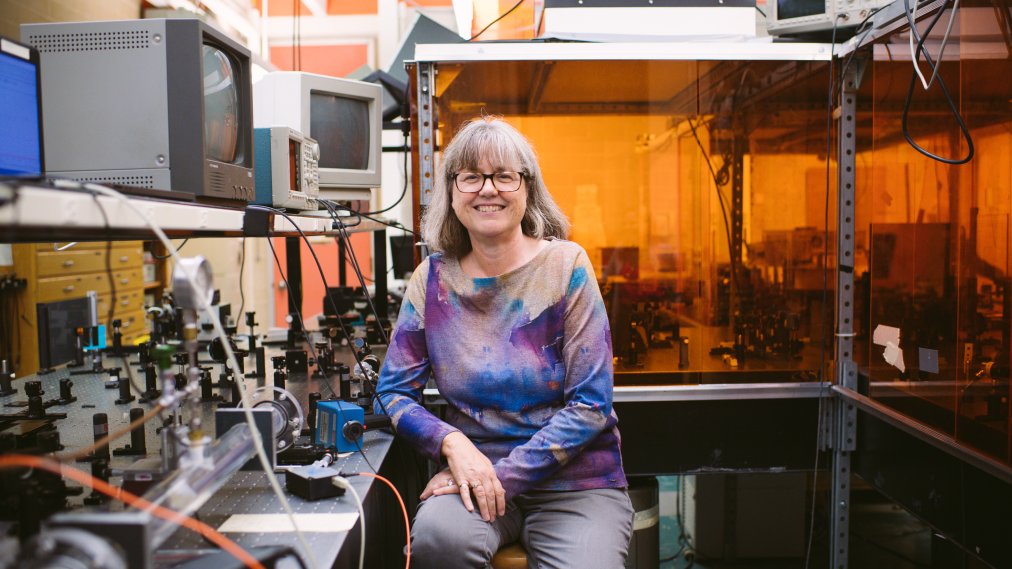
Society of Women Engineers (SWE) review research in 2018 for insight on the status and trends for women in engineering. Here are the highlights:
 “Leaky pipeline” / interest in engineering:
“Leaky pipeline” / interest in engineering:
“Women offered less-positive estimates of their own intellectual abilities than men, and were more likely to endorse the view that engineers and computer scientists possessed stereotypical (strong) intellectual abilities, which predicted lower female interest in these disciplines.” Bian et al. (2018) “found that messages indicating that a university major, internship, or position involved brilliance lowered women’s interest in those opportunities and were less likely to see themselves as similar to the typical person in those roles.”
Women in academic engineering:
“Griffith and Dasgupta (2018) report on a survey of 383 STEM faculty members at a public research university in the northeastern U.S. They found that female STEM faculty were less satisfied than their male colleagues where women were a minority, particularly in departments where women represented less than 25 percent of the department. In departments with more balance (close to 50 percent women), these differences in satisfaction disappeared.”
“One familiar theme in analysis of female academics in general, and STEM faculty specifically, is the greater burden of service work that falls on women.” Research by Pedersen and Minnotte (2018) contributes to this ongoing discussion: “They viewed service obligations as onerous, isolating, a hindrance to research, and detrimental to family responsibilities and their own health. Women who had already achieved tenure resented being asked to take on additional service responsibilities to shelter junior colleagues, since no such protection had been extended to them.
The male culture of engineering:
“Several of the studies reviewed here note that women who experience a hostile environment often either try to ignore it or rationalize their experience and are not inclined to report their negative experiences or to use existing legal tools to effect changes.”
Later leaks in the pipeline:
Cardador and Hill (2018) examined how career paths affect attrition: “Women were overrepresented in the managerial and hybrid paths, with the latter being the path most associated with intent to leave the profession. Those on the technical path reported lower levels of intent to leave…”
“Another study we reviewed this year points to an additional possible ‘leak’ in the pipeline — the interview process that mediates between school and work.” Wynn and Correll (2018) report on their analysis of observational data from recruiting sessions by technology companies at a prominent West Coast university (this study is particularly interesting because the companies involved were actively trying to recruit women engineers and computer scientists). Wynn and Correll found that interviewing practices put women off. Most of the presenters were men, with women in marginal roles. Question-and-answer sessions were dominated by men and tended to turn into opportunities for ‘display.’ Some of the interview presentations made use of sexualized images of women and there were a number of references to gendered pop culture images and a tendency to describe the workplace as having fraternity-like qualities. The sessions emphasized technicality above all else, which tended to put women off…”
Wages:
“New research on income inequality also came from Europe this year. Career-satisfaction data from Spain revealed that income plays a larger role in women engineers’ career satisfaction than in men’s (Martínez-León, Olmedo-Cifuentes, and Ramón-Llorens, 2018).”
“Women were as likely as men to negotiate their salaries, but men were more likely to receive a greater increase in salary from negotiating. Furthermore, men who negotiated with men were more likely to receive a greater percent increase in salary than women who negotiated with women.”
Intersectionality:
“The study compared and contrasted differences in instrumental versus advice-giving professional networks, and found that men have larger instrumental networks, whereas women have larger advice-giving networks. This is a concern because the study also found that instrumental networks increase scholarly productivity, while advice networks decrease it. In other words, women’s professional networks are less likely to contribute to their scholarly productivity. White men had the highest levels of productivity out of any group.”

Conclusion:
“It appeared that 2018 was going to be a breakthrough year for women in STEM when it was announced that Donna Strickland, Ph.D., had been awarded the Nobel Prize in Physics. She was only the third woman ever to receive this distinction, and the announcement of her award brought a great deal of public attention to the issue of gender in science and engineering. The story took a different turn, however, as it developed. Many were astonished to learn that Dr. Strickland was still an associate professor, even though she was a Nobel Prize recipient well into her career at age 59. Despite her accomplishments, no Wikipedia page on her or her work existed. In fact, one article we reviewed this year noted the general absence of Wikipedia pages on female scientists (White, 2018). Dr. Strickland herself expressed surprise at the focus on her gender and said she preferred to think of herself as a scientist, not a woman scientist (McBride, 2018). When asked why she was still an associate professor, Dr. Strickland answered, ‘I never applied.’ (Crowe, 2018).
Dr. Strickland’s puzzlement and reluctance to engage actively with the politics of gender in science illustrates a dilemma confronting those who seek to increase the numbers of women in engineering and science and promote gender equity in STEM. As we have noted in previous reviews, many female engineers and scientists share Dr. Strickland’s avoidance of gender politics and tend to see the underrepresentation of women in STEM not as a structural problem but as a matter of individual choices and abilities.
This was made clear by an important article we reviewed this year titled ‘I Am Not a Feminist, but … .’ Seron et al. (2018) conducted research at four engineering programs in New England (MIT, Olin College of Engineering, Smith College, and the University of Massachusetts Amherst). At each school, they tracked a cohort of female students over a four-year period (2003-7), asking them to complete diaries about their experiences. The results of the study showed that respondents generally were aware of their marginalization as women in a male-dominated field, but they rejected a feminist critique of the discipline, tending instead to embrace an individualist account of their own success. Respondents associated feminism with a demand for preferential treatment, something they rejected because they saw themselves as having succeeded on their own merits. The underrepresentation of women in engineering, to them, was unfortunate but natural — the only solution was better-prepared women.
Seron et al. say of their respondents: ‘While providing clear and strong criticisms of their experiences, they rarely recognize structural inequities, or translate these matters and their own marginality, either individually or collectively, into a commentary on the engineering profession itself.’ (p. 133) Seron et al.’s conclusion that many women engineers accept the meritocratic ethos of the profession with its emphasis on individual achievement makes it seem unlikely that organized pressure to change the gender balance in engineering will arise from within. But, in the absence of such a critique, where will the impetus to change come from? As the research we reviewed this year (and in past years) has shown, women have greatly increased their performance on objective tests of math and science ability, but this has not yet translated into significant increases in the numbers of women in engineering, computer science, and related fields. The literature we have reviewed points to the existence of powerful structural and cultural barriers that continue to push against gender equity in STEM. The question is, who will push back?”
About the SWE report authors:
Peter Meiksins, Ph.D., is vice provost for academic programs and professor of sociology at Cleveland State University. He is co-author (with Stephen Sweet) of Changing Contours of Work: Jobs and Opportunities in the New Economy, 3rd edition (Sage, 2017), and serves as an advisory editor of Engineering Studies.
Peggy Layne, P.E., F.SWE, is assistant provost for faculty development at Virginia Tech. She holds degrees in environmental and water resources engineering and science and technology studies. Layne is the editor of Women in Engineering: Pioneers and Trailblazers and Women in Engineering: Professional Life (ASCE Press, 2009). A Fellow of the Society of Women Engineers, Layne served as SWE FY97 president.
Kacey Beddoes, Ph.D., is founding director of the Research in Sociology of Engineering group. She holds a Ph.D. in science and technology studies from Virginia Tech, along with graduate certificates in women’s and gender studies and engineering education. She serves as deputy editor of the journal Engineering Studies and as chair of the European Society for Engineering Education (SEFI) Working Group on Gender and Diversity. In 2017, Dr. Beddoes received an NSF CAREER award for her work on gender in engineering. Further information about her research can be found at www. sociologyofengineering.org.
Marc Lewis is a Ph.D. candidate in the higher education program at Virginia Tech, while serving as a graduate assistant on the faculty affairs team in the office of the provost. His current research interests include access to higher education and equity in the college experience for low-income students.
Adam S. Masters is a graduate student at Virginia .Tech, currently pursuing a Ph.D. in engineering education and a master’s in mechanical engineering. Masters researches and advocates for access and equity in engineering; current research explores inclusive practices with partners from diverse, liberatory makerspaces. Masters has served as a SWE counselor twice and is a recipient of the SWE Ada I. Pressman Memorial Scholarship.
Jessica Deters is a Ph.D. student in the engineering education department at Virginia Tech. Her current research interests include access, engineering identity, interdisciplinarity, and experiential learning.


